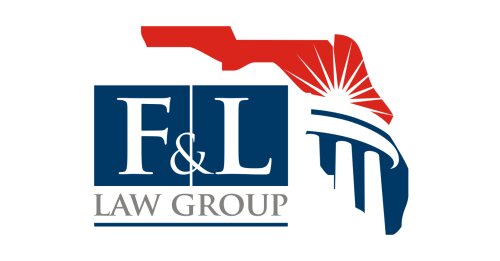Best Property Damage Lawyers in Fort Myers
Share your needs with us, get contacted by law firms.
Free. Takes 2 min.
List of the best lawyers in Fort Myers, United States
United States Property Damage Legal Questions answered by Lawyers
Browse our 1 legal question about Property Damage in United States and read the lawyer answers, or ask your own questions for free.
- MOVING COMPANY DAMAGED RENTAL HOME, FURNITURE AND NEW HOME
- MOVING COMPANY DAMAGED WALLS AND FURNITURE IN TWO HOUSES, THEY DIDNT USED PACKING BLANKETS OR MOVING EQUIPMENT, I FILED A DAMAGE CLAIM MID MOVE, AND RELIEVED THE WORKERS EARLY FROM SCHEDULED TIME TOOK PICS AND SUBMITTED TO THE MOVING COMPANY, NOW THE MOVING COMPANY IS INSINUATING WE CAUSED THE DAMAGE,... Read more →
-
Lawyer answer by T & A Legal
Hello, sorry about the damage to your walls and furniture. The moving company may be liable for a breach of contract or negligence. However, their liability will be determined largely by the contract between you and the moving company.Please note...
Read full answer
About Property Damage Law in Fort Myers, United States
Property damage refers to harm caused to real or personal property, such as buildings, vehicles, or belongings. In Fort Myers, United States, property damage cases are governed by specific laws and regulations. Understanding these laws is crucial if you are dealing with property damage issues.
Why You May Need a Lawyer
While minor property damage cases can sometimes be resolved without legal assistance, there are several situations where it becomes essential to hire a property damage lawyer. These include:
- Disputes with insurance companies: If your insurance company is denying your claim, undervaluing the damage, delaying payments, or acting in bad faith, a lawyer can help protect your rights and fight for the compensation you deserve.
- Complex legal proceedings: In cases where property damage has led to injuries, multiple parties are involved, or the damage is significant, legal representation can be invaluable. A lawyer will navigate the legal complexities, gather evidence, and build a strong case on your behalf.
- Negotiating settlements: If you are in a dispute with another party involved in the property damage, a lawyer can negotiate on your behalf to ensure a fair settlement. They will advocate for your interests and work towards a resolution that fully compensates you for the damage suffered.
- Assessing property damage value: Determining the true value of property damage can be challenging. A property damage lawyer has the experience and expertise to accurately assess the damages, including both tangible and intangible losses. They will ensure you are not shortchanged by settlement offers.
Local Laws Overview
Fort Myers has specific laws and regulations that are relevant to property damage cases. Some key aspects of these laws include:
- Statute of limitations: In Fort Myers, there is a time limit within which you must file a property damage lawsuit. Typically, this limit is four years from the date the damage occurred. Consult with a lawyer to understand the specific deadlines applicable to your case.
- Comparative fault: Florida follows a "comparative fault" rule, which means that if you were partially at fault for the property damage, your compensation may be reduced. The amount of fault assigned to each party will impact the final settlement or judgment.
- Insurance requirements: Florida law requires property owners to carry adequate insurance coverage. Understanding your insurance policy provisions and how they apply to your property damage is crucial in seeking compensation.
Frequently Asked Questions
1. What should I do immediately after experiencing property damage?
After experiencing property damage, it is important to take the following steps:
- Ensure your safety and the safety of others involved.
- Contact the necessary authorities, such as the police or fire department, if required.
- Take photos or videos of the damage as evidence.
- Notify your insurance company and provide them with all relevant details.
- Consult with a property damage lawyer to understand your legal rights and options.
2. Should I accept the insurance company's initial settlement offer?
Insurance companies often make low settlement offers initially. It is advisable to consult with a property damage lawyer before accepting any offer. A lawyer can evaluate the true value of your damages and negotiate for a fair settlement that adequately compensates you.
3. Can I sue for property damage even if I don't have insurance?
Yes, you can pursue a property damage lawsuit even if you do not have insurance. However, having insurance coverage can help protect you financially and provide a source of compensation. Consult with a lawyer to understand your options and the potential impact of not having insurance.
4. Can I handle a property damage case on my own without a lawyer?
While it is possible to handle a property damage case without a lawyer, it can be challenging, especially if the damage is significant or involves complex legal issues. A lawyer can provide guidance, protect your rights, and increase your chances of obtaining a favorable outcome.
5. How much will it cost to hire a property damage lawyer?
The cost of hiring a property damage lawyer can vary depending on various factors, such as the complexity of your case, the lawyer's experience, and their fee structure. Many property damage lawyers work on a contingency fee basis, which means they only get paid if they secure a settlement or win the case. It is important to discuss fees and payment arrangements with the lawyer during the initial consultation.
Additional Resources
Here are some additional resources related to property damage that can be helpful:
- Florida Department of Financial Services - Division of Consumer Services
- Florida Bar Association - Property Insurance Claims Resources
- Local Fort Myers Building Department
Next Steps
If you need legal assistance regarding property damage in Fort Myers, it is recommended to take the following steps:
- Gather all relevant documents, including insurance policies, photographs of the damage, and any correspondence with the insurance company.
- Schedule a consultation with a property damage lawyer who has experience in Fort Myers.
- During the consultation, provide all details about the damage and ask any questions you may have.
- Follow the lawyer's advice on how to proceed with your case, including gathering additional evidence or filing a lawsuit, if necessary.
- Maintain open communication with your lawyer and provide any requested information or updates promptly.
- Work closely with your lawyer to negotiate a fair settlement or prepare for trial, depending on the circumstances of your case.
Lawzana helps you find the best lawyers and law firms in Fort Myers through a curated and pre-screened list of qualified legal professionals. Our platform offers rankings and detailed profiles of attorneys and law firms, allowing you to compare based on practice areas, including Property Damage, experience, and client feedback.
Each profile includes a description of the firm's areas of practice, client reviews, team members and partners, year of establishment, spoken languages, office locations, contact information, social media presence, and any published articles or resources. Most firms on our platform speak English and are experienced in both local and international legal matters.
Get a quote from top-rated law firms in Fort Myers, United States — quickly, securely, and without unnecessary hassle.
Disclaimer:
The information provided on this page is for general informational purposes only and does not constitute legal advice. While we strive to ensure the accuracy and relevance of the content, legal information may change over time, and interpretations of the law can vary. You should always consult with a qualified legal professional for advice specific to your situation.
We disclaim all liability for actions taken or not taken based on the content of this page. If you believe any information is incorrect or outdated, please contact us, and we will review and update it where appropriate.










